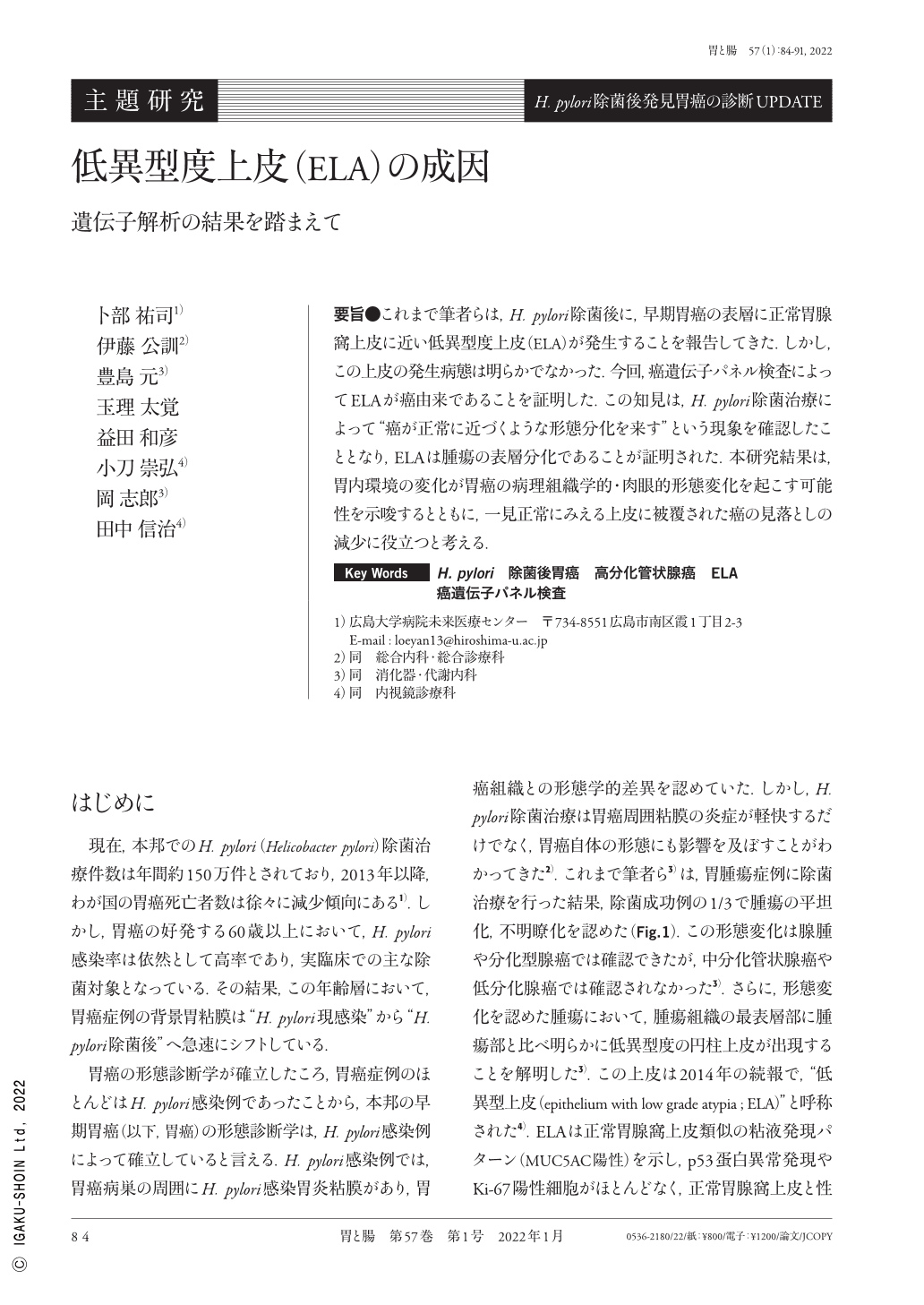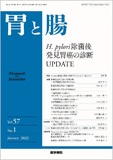Japanese
English
- 有料閲覧
- Abstract 文献概要
- 1ページ目 Look Inside
- 参考文献 Reference
要旨●これまで筆者らは,H. pylori除菌後に,早期胃癌の表層に正常胃腺窩上皮に近い低異型度上皮(ELA)が発生することを報告してきた.しかし,この上皮の発生病態は明らかでなかった.今回,癌遺伝子パネル検査によってELAが癌由来であることを証明した.この知見は,H. pylori除菌治療によって“癌が正常に近づくような形態分化を来す”という現象を確認したこととなり,ELAは腫瘍の表層分化であることが証明された.本研究結果は,胃内環境の変化が胃癌の病理組織学的・肉眼的形態変化を起こす可能性を示唆するとともに,一見正常にみえる上皮に被覆された癌の見落としの減少に役立つと考える.
Gastric cancer may develop after successful eradication of H. pylori(Helicobacter pylori). We previously reported the appearance of characteristic epithelium with ELA(low-grade atypia)on the surface of gastric cancer tissue after H. pylori eradication. However, whether ELA originates from cancer after redifferentiation or from the noncancerous surrounding mucosa is unknown. In this study, we performed cancer-panel sequencing examination and identified that ELA arose as a result of surface differentiation from well differentiated gastric carcinomas. This result suggested the possibility that histological and morphological changes in gastric cancer occur due to changes in the gastric environment. Moreover, this result is helpful to prevent overlooking of gastric cancer after H. pylori eradiation therapy.

Copyright © 2022, Igaku-Shoin Ltd. All rights reserved.


